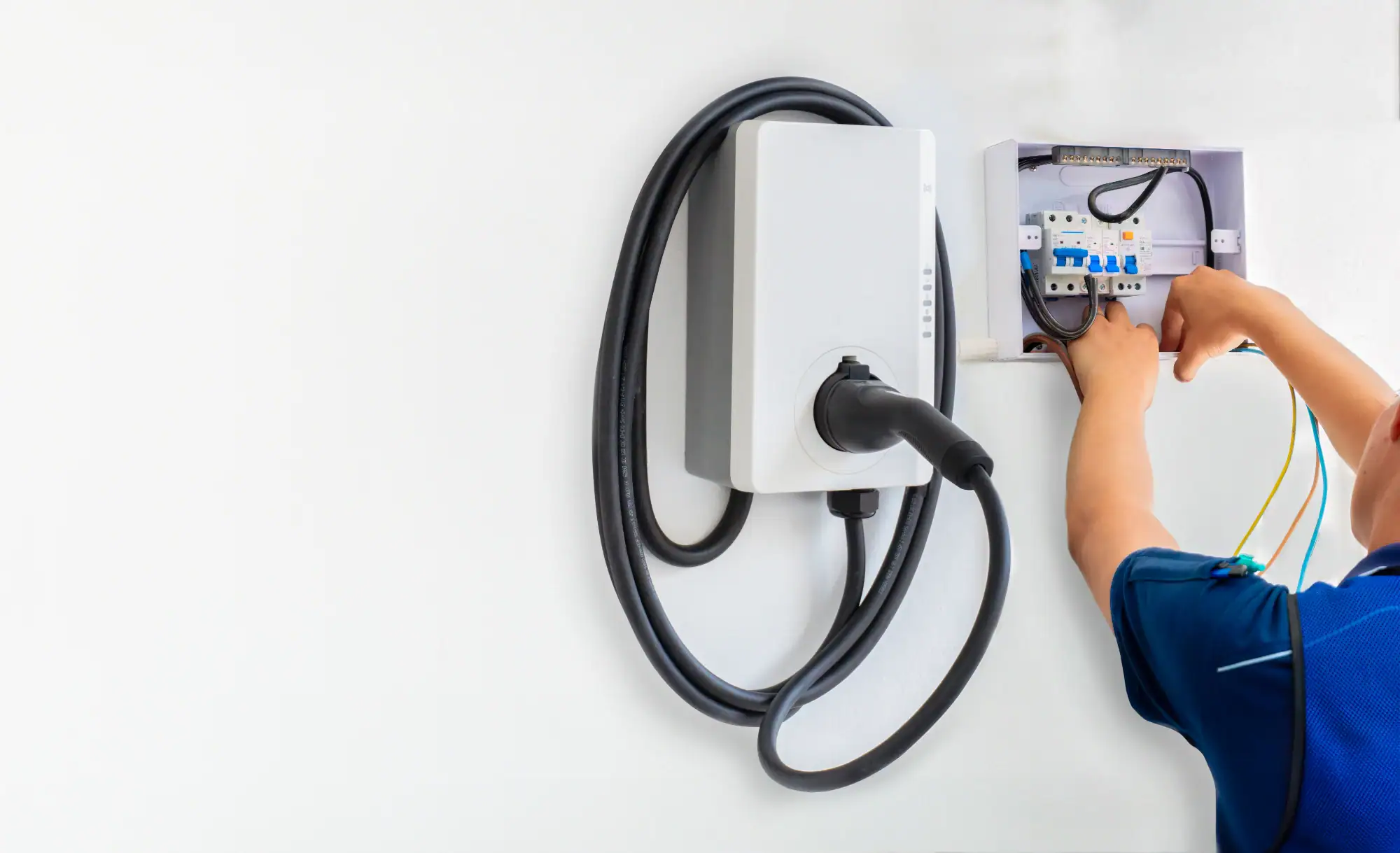Licensed electricians who understand your home’s electrical system and get your EV charger installed right the first time.
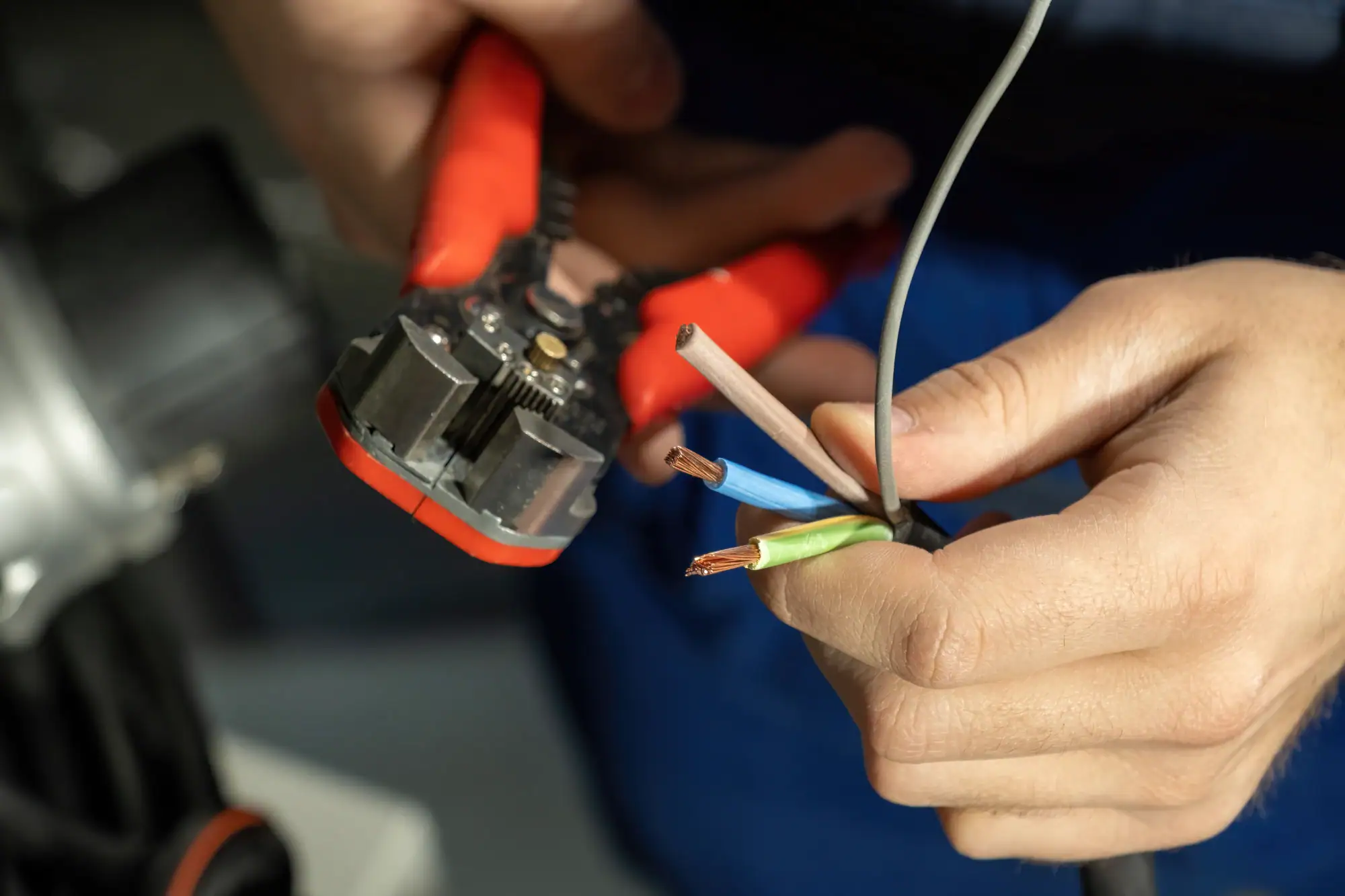
Hear from Our Customers
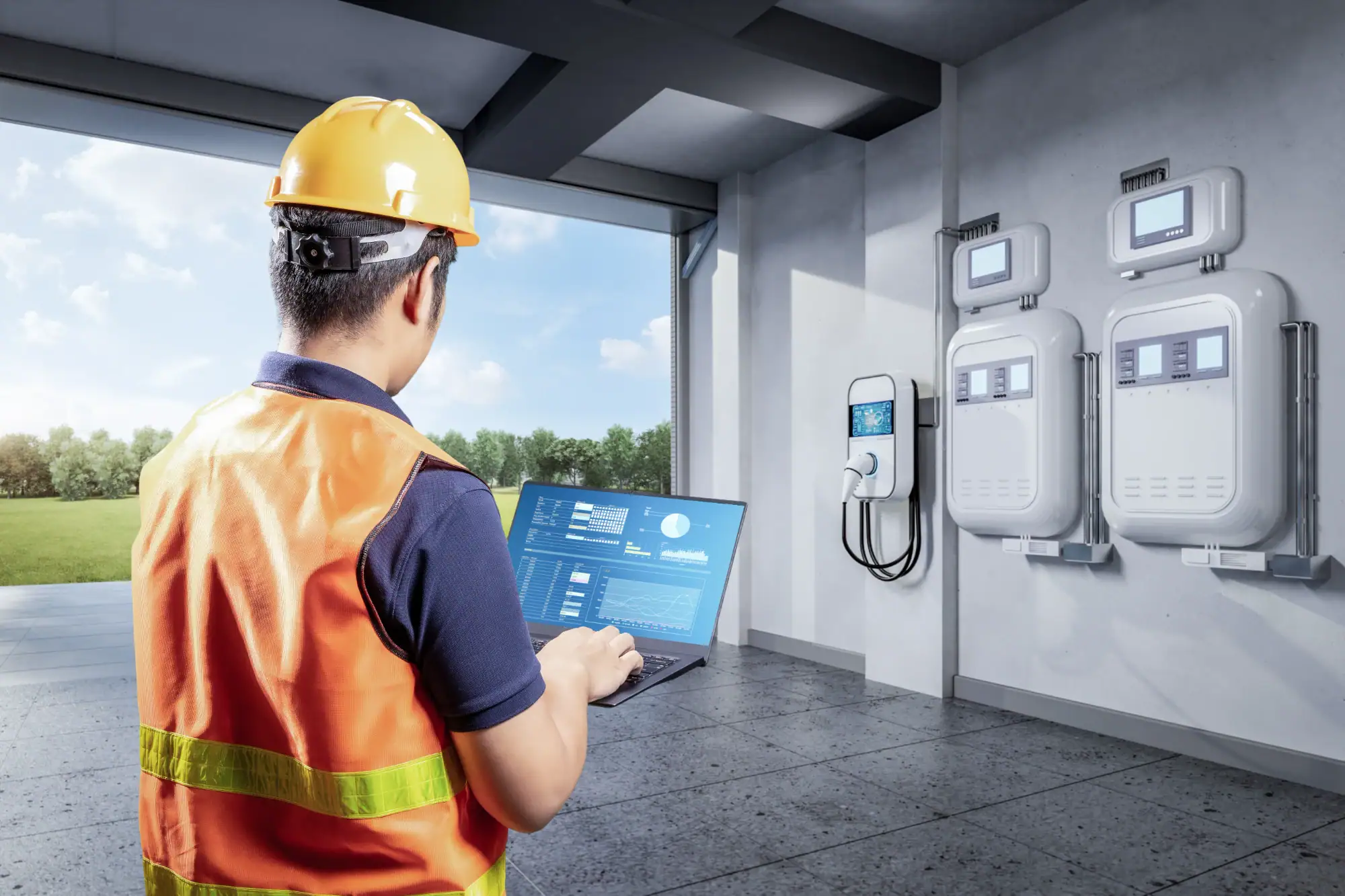
You’ll wake up every morning with a fully charged vehicle, ready for whatever your day brings. No more planning routes around charging stations or waiting in line at public chargers.
Your home becomes your personal fueling station. Pull into your garage, plug in, and you’re done. It’s that simple when the installation is done right.
The peace of mind is worth everything. You know your electrical system can handle the load, your installation meets all safety codes, and your family is protected from electrical hazards that come with improper installations.
Jimco Electric has been solving residential electrical problems in the Posen area for over two decades. We’ve seen every type of electrical issue that can occur in homes, from flickering lights to complete panel upgrades.
This experience matters when you’re adding a high-powered EV charger to your home. We know how to properly assess your electrical capacity, determine if upgrades are needed, and install your charging system safely.
We’re licensed, bonded, and insured, which protects both your home and your investment. When electrical work goes wrong, it goes really wrong – that’s why you want professionals who’ve been doing this successfully for 25 years.
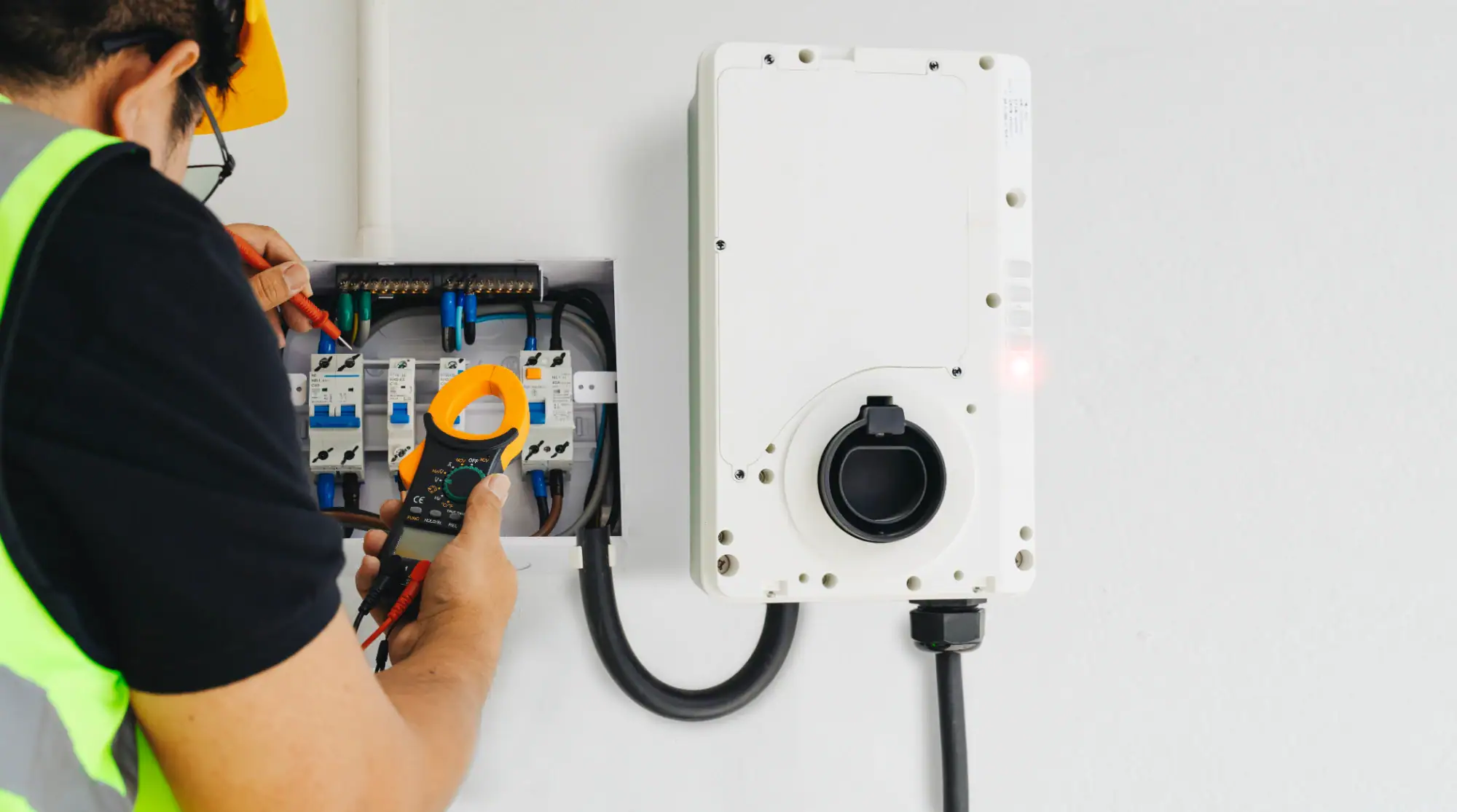
First, we assess your home’s electrical capacity to determine if your current panel can handle an EV charger. Many homes need a dedicated 240V circuit, and some require panel upgrades to safely support the additional electrical load.
Next, we handle all permit requirements and ensure the installation meets local electrical codes. This isn’t just about following rules – it’s about protecting your home, your family, and your insurance coverage.
The installation itself involves running the appropriate wiring, installing the charging unit, and testing everything to ensure it works properly. We’ll show you how to use your new charger and answer any questions about optimal charging practices for your specific EV model.
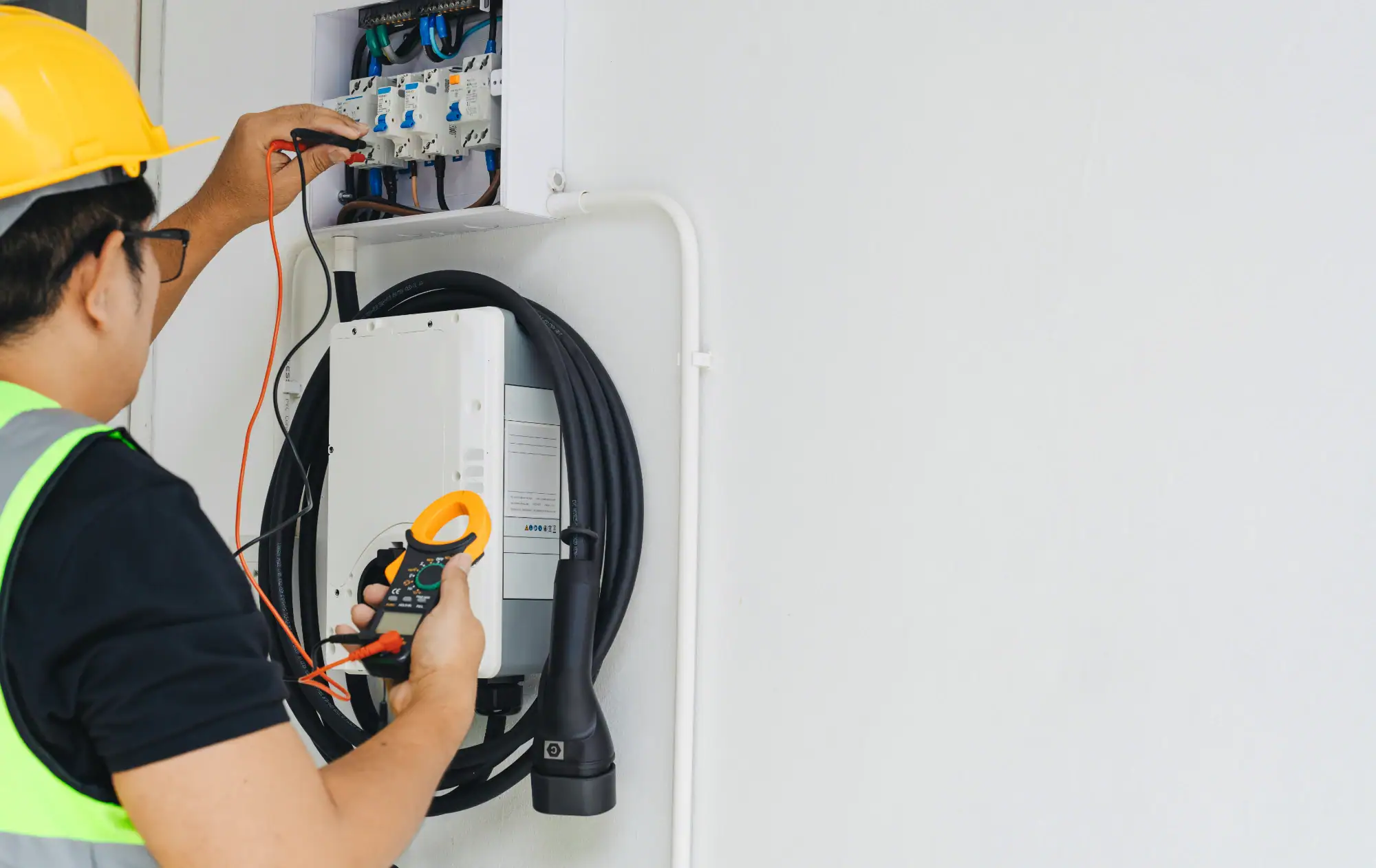
Ready to get started?
Every installation includes a thorough electrical assessment to ensure your home can safely support EV charging. This often reveals other electrical issues that need attention, preventing future problems and ensuring reliable charging.
Posen homeowners frequently need panel upgrades to accommodate EV chargers, especially in older homes with 100-amp or 150-amp electrical services. Modern EVs typically require 240V, 40-50 amp circuits for optimal charging speeds, which can strain older electrical systems.
We handle all permitting and inspection requirements, ensuring your installation complies with Illinois electrical codes and local Posen regulations. This protects your homeowner’s insurance coverage and maintains your home’s resale value. Many insurance companies require professional installation for coverage of EV-related electrical issues.
